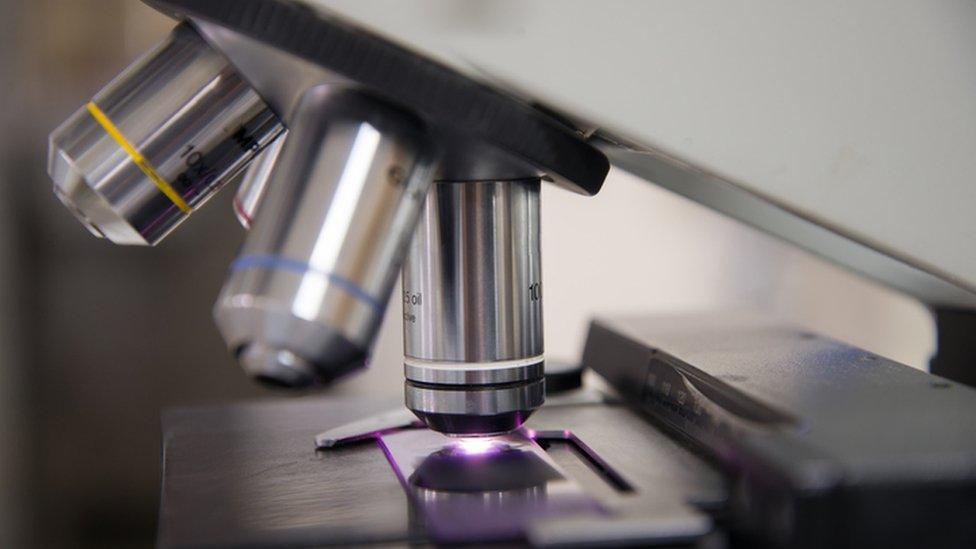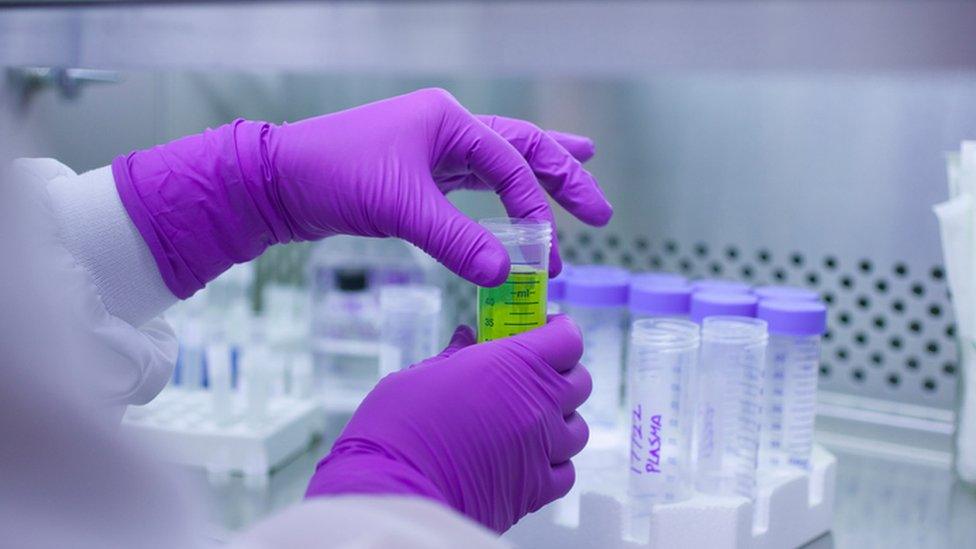Will Brexit make Scottish science lose its punch?
- Published
Brexit risks to EU funding for Scottish scientific research
Scotland is good at science. But can things stay that way after Brexit?
The principal of Glasgow University says Brexit could imperil Scotland's universities.
The Scottish government's chief scientific adviser says it's worrying.
And the University of the Highlands and Islands says it is having to put major projects on hold until the situation becomes clear.
Scottish science punches above its weight. We get a far bigger share of the UK's science budget than the size of our population might suggest. The reason is simple: because we're good at it.
The Scottish Enlightenment developed great minds like the physicist James Clerk Maxwell, whose discoveries of the nature of electromagnetism influenced Einstein and eventually led to the discovery of the Higgs Boson.
That tradition of excellence has not just attracted money from Westminster but more than a billion euros from the EU over the past 10 years.

In European funding, as with the UK, Scottish research attracts more than our population share. Between 2007 and 2013 the European Commission says its seventh framework programme (FP7) supported Scottish research to the tune of almost 730m euros.
FP7's successor Horizon 2020 has brought in almost 300m euros to date.
There are one or two caveats to bear in mind. The numbers include support not just for science but for research in the arts, humanities and social sciences. And much of this "European" money would have begun its journey in the UK economy.
On the other hand, the totals cover just the headline research funding schemes. Further sources of research support - for businesses, for example - come our way too.
But for the principal of one the major beneficiaries, Professor Anton Muscatelli of Glasgow University, there's a lot more to it than the money.
His concern is for the free movement of people who come to research and study in Scotland.
"The universities in Scotland are a fantastic asset to this country," he says.
"That is an asset we really don't want to lose.
"And that could be imperilled."

The Scottish government says it's concerned about the impact of Brexit uncertainty on potential research collaborations - and points the finger at the UK government.
Whitehall says the Treasury has confirmed it will underwrite the payment of European funding, even when specific projects continue beyond the UK's departure from the EU.
But the uncertainty beyond the end of that timescale concerns many institutions, not least the University of the Highlands and Islands (UHI).
European funding has levered in more than £200m in investment in the last 20 years.
EU structural funds helped build its network of campuses. Then its growing research base drew in more funding. But Brexit is giving UHI pause.
Its director of European and International Development, Linda Stewart, says they're already having to put big plans on hold - a major project with EU funding to increase the higher level skills base in the Highlands and Islands.
Almost £30m would be spent to, among other things, substantially increase the number of people with doctorates.
She says Brexit has thrown that into doubt.
"We know a lot of that funding has been confirmed in the short term. But a doctorate takes three-and-a-half to four years.
"We just cannot in all honesty start any of these big, major projects when we don't know the funding is going to be confirmed 100% long-term."
Any upsides?
For the Scottish government's chief scientific adviser, Professor Sheila Rowan, the concern is about the potential loss of Scottish influence through international collaboration:
"It's of course worrying for us because science doesn't really respect borders," she says.
"To push back the frontiers and make real progress, much of that involves international collaboration.
"And so our relationships with our colleagues in Europe - and how we work with them in Europe - that's very, very important to the scientific community."
Could there be any upsides to this?
Science is international - and resilient. Scotland played a role in the two biggest scientific breakthroughs this century - the Higgs Boson and the discovery of gravitational waves. Both were the result of international collaborations far bigger than the EU.
And Scotland might be able to buy back in to the European research framework after the UK leaves the EU.
Right now it's too early to say which - if any - areas of Scottish research might be under threat.
But there's a growing realisation of what is at stake.